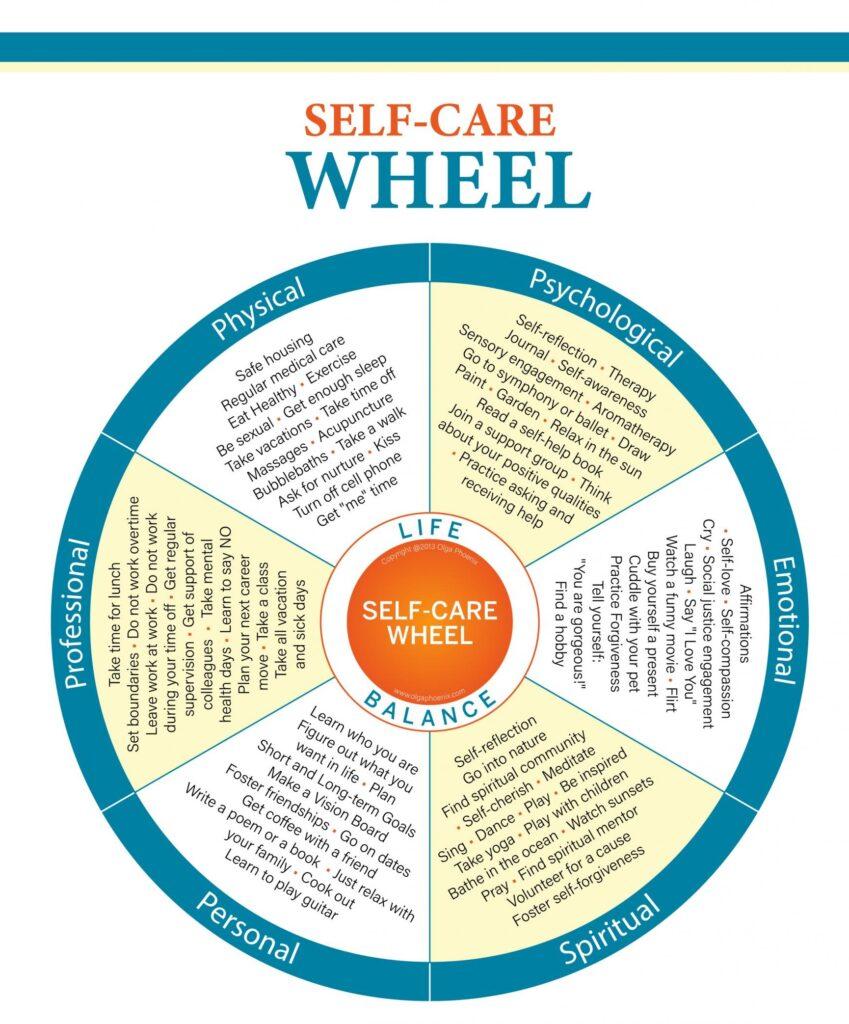
In the ever-evolving world of content creation, course development, coaching, and online entrepreneurship, it’s not just about skills and strategies; your mindset around money plays a crucial role in your journey to success. Your money mindset influences not only how you perceive wealth but also how you make financial decisions and navigate the unpredictable waters of the digital business landscape.
Imagine this: You have a brilliant idea, a top-notch course, or a service that could change lives. Yet, you find yourself hesitating, doubting your worth, or worrying about financial stability. It’s a familiar scenario for many entrepreneurs. But fear not! In this blog post, we’re about to embark on a transformative journey that will empower you to master your money mindset. We’ll dive deep into the psychology of financial success and explore practical strategies to help you thrive in the digital realm.
Here’s a sneak peek at what lies ahead:
Understanding Money Mindset: We’ll define what money mindset is and its profound impact on your entrepreneurial journey.
Identifying Your Current Money Mindset: Through self-assessment exercises, you’ll gain insight into your existing money mindset and the areas that may need improvement.
Shifting Your Money Mindset: You’ll discover practical techniques to transition from a limiting mindset to one of abundance and growth.
Money Mindset and Goal Setting: Learn how to set financial goals that align with your newfound mindset and turn them into actionable plans.
Overcoming Common Financial Challenges: We’ll tackle issues like imposter syndrome and setbacks, providing strategies for overcoming them.
Building a Prosperous Business: Get practical tips on how to build a profitable business online and diversify your income streams.
So, let’s start this journey together and reshape the way you think about money. It’s time to unlock your full potential as a content creator, course creator, coach, or online entrepreneur. Let’s dive in!
Understanding Money Mindset
Definition of Money Mindset and Its Impact on Success
Your money mindset is the collection of beliefs, attitudes, and emotions you hold about money. It shapes your financial behaviors, decisions, and ultimately, your financial success. It’s the lens through which you view and interact with money, and it can have a profound impact on your entrepreneurial journey. A positive money mindset can empower you to make smart financial choices, attract opportunities, and achieve your goals, while a negative or limiting mindset can hinder your progress and keep you stuck in a cycle of financial challenges.
Common Money Mindset Challenges Faced by Online Entrepreneurs
Many online entrepreneurs encounter common money mindset challenges that can impede their progress. These include:
Fear of Failure: The fear of not succeeding or losing money can paralyze entrepreneurs, preventing them from taking risks that might lead to growth.
Imposter Syndrome: Doubting your abilities and feeling like a fraud can hinder your confidence in pricing your services or products competitively.
Scarcity Mindset: Believing there’s not enough to go around or that opportunities are limited can prevent you from seizing lucrative opportunities.
Guilt or Shame: Feeling guilty about earning money or worrying that financial success might change you as a person can hold you back from pursuing your full potential.
The Connection Between Mindset and Financial Results
Your money mindset is directly linked to your financial results. When you hold a positive and growth-oriented money mindset, you are more likely to:
- Make informed financial decisions that promote your financial well-being.
- Attract opportunities, clients, and investments.
- Feel confident in setting and achieving ambitious financial goals.
- Adapt to challenges and setbacks with resilience and determination.
On the contrary, a negative or limiting money mindset can lead to financial struggles, self-sabotage, and missed opportunities. Recognizing and reshaping your money mindset is not just about accumulating wealth; it’s about creating the conditions for your entrepreneurial endeavors to thrive.
In the following sections, we will explore techniques and strategies to identify and transform your money mindset, helping you build a solid foundation for financial success in your online ventures.
Identifying Your Current Money Mindset
Self-assessment Exercises to Help Readers Recognize Their Existing Money Mindset
To begin the journey of transforming your money mindset, it’s essential to understand where you currently stand. Your existing money mindset may be a mix of beliefs you’ve inherited, experiences you’ve had, and ideas you’ve formed over time. To help you gain clarity, let’s engage in some self-assessment exercises:
Journaling: Start a money journal where you document your thoughts and emotions related to money. Note your reactions to financial challenges, your beliefs about wealth, and your attitude towards spending, saving, and earning money.
Financial History: Reflect on your past financial experiences, such as your childhood experiences with money, early lessons from family, or any significant financial events that have influenced your current mindset.
Feedback: Ask friends, family, or colleagues about how they perceive your money mindset. They might offer insights that you haven’t considered.
The Role of Self-awareness in Transformation
Self-awareness is the cornerstone of transforming your money mindset. Recognizing your current beliefs, emotions, and behaviors related to money is the first step toward change. Here’s why self-awareness is crucial:
Identification of Patterns: Self-awareness helps you identify recurring patterns in your financial decisions and behaviors. For example, you might notice that you consistently underprice your services due to self-doubt.
Understanding Triggers: Self-awareness enables you to recognize the triggers that provoke negative money emotions, such as stress or fear. Understanding these triggers allows you to develop strategies for managing them.
Setting Clear Goals: When you are self-aware, you can set specific financial goals that align with your desired money mindset. Whether it’s to increase your income or improve your relationship with money, clarity in your goals is essential.
Embracing Change: Self-awareness empowers you to embrace change. You’ll be more open to shifting your mindset as you understand the impact it has on your life and entrepreneurial endeavors.
In the upcoming sections, we’ll delve deeper into strategies and exercises that will help you transform your money mindset. The journey begins with self-assessment, but it doesn’t end there. It’s about leveraging this awareness to create a healthier and more empowering relationship with money.
Shifting Your Money Mindset
Strategies for Changing a Limiting Money Mindset to a Growth-Oriented One
Transitioning from a limiting money mindset to a growth-oriented one is a journey of self-discovery and transformation. Here are strategies to help you make that shift:
Challenge Your Beliefs: Start by identifying the limiting beliefs you hold about money. Question their validity and seek evidence to the contrary. For example, if you believe you’ll never earn a substantial income, look for stories of individuals who achieved financial success in your field.
Surround Yourself with Positivity: Engage with resources and communities that promote a positive money mindset. Books, podcasts, and networking with like-minded individuals can help reinforce new, empowering beliefs.
Set SMART Goals: Create Specific, Measurable, Achievable, Relevant, and Time-bound (SMART) financial goals. Having clear objectives will keep you motivated and focused on growth.
Celebrate Small Wins: Acknowledge and celebrate your financial achievements, no matter how modest they may seem. Every step towards your financial goals is a victory worth recognizing.
Tips for Overcoming Fears and Doubts Related to Money
Fear and doubt often go hand-in-hand with a limiting money mindset. Here are tips to address these emotions:
Face Your Fears: Identify specific fears you have about money, whether it’s the fear of failure, losing money, or not being good enough. Acknowledge them and confront them head-on.
Seek Professional Help: If fear and doubt are deeply ingrained, consider consulting with a therapist, counselor, or a financial coach. They can help you work through these emotional barriers.
Practice Mindfulness: Mindfulness techniques can help you become more aware of your fears and doubts. Techniques like meditation and deep breathing can be effective in managing anxiety and stress related to money.
Create a Support System: Share your fears and doubts with a trusted friend, mentor, or coach who can offer guidance and encouragement.
The Power of Affirmations and Visualization in Reshaping Mindset
Affirmations and visualization are powerful tools for transforming your money mindset:
Positive Affirmations: Develop a list of positive affirmations related to money, such as “I am worthy of financial success,” or “Money flows to me easily and abundantly.” Repeat these affirmations daily to reinforce a growth-oriented mindset.
Visualization: Visualize your financial success in vivid detail. Imagine achieving your goals, feeling the emotions associated with it, and seeing yourself enjoying the benefits. This helps reprogram your subconscious mind for success.
Vision Board: Create a vision board with images, quotes, and symbols representing your financial aspirations. Place it where you can see it daily to keep your goals in focus.
Journaling: Write in a success journal, detailing your financial achievements, no matter how small. Regularly reviewing your successes can boost your confidence and reinforce your growth-oriented mindset.
Shifting your money mindset is a gradual process, but with dedication and these strategies, you can make substantial progress in reshaping your relationship with money. In the following sections, we’ll delve deeper into understanding the differences between an abundance and scarcity mindset, as well as setting and achieving financial goals that align with your newfound mindset.
Abundance vs. Scarcity Mindset
Explanation of Abundance and Scarcity Mindsets
Your money mindset can broadly be categorized into two main types: abundance and scarcity mindsets.
Abundance Mindset: This mindset is characterized by the belief that there is plenty of opportunity, wealth, and success to go around. Those with an abundance mindset see the world as full of possibilities, and they focus on growth, collaboration, and creating their own success.
Scarcity Mindset: Conversely, the scarcity mindset is marked by the fear that resources are limited and that there’s not enough to meet one’s needs. Individuals with a scarcity mindset tend to be risk-averse, hoard resources, and view success as a zero-sum game where one person’s gain is another’s loss.
Real-Life Examples of How These Mindsets Affect Financial Decisions
Let’s look at real-life scenarios to understand how these mindsets affect financial decisions:
Investment Choices: Someone with an abundance mindset might be more willing to invest in themselves, their education, or their business, viewing it as a path to greater success. Meanwhile, a person with a scarcity mindset might be hesitant to spend money on self-improvement, fearing the loss of resources.
Pricing Services: An abundance mindset would lead a freelancer or business owner to confidently charge what they’re worth, believing that clients will recognize the value. In contrast, someone with a scarcity mindset might underprice their services, fearing that higher prices will drive away potential customers.
Collaboration vs. Competition: Those with an abundance mindset tend to see potential collaborators as allies rather than competitors. They are open to partnerships and cooperative efforts. Scarcity mindset individuals may view others in their field as direct threats, leading to more adversarial relationships.
Handling Setbacks: When faced with financial setbacks or failures, individuals with an abundance mindset are more likely to see these as learning opportunities and are quicker to pivot and adapt. Those with a scarcity mindset might dwell on failures, afraid of future financial challenges.
Techniques to Foster an Abundance Mindset
Transitioning from a scarcity mindset to an abundance mindset is possible through various techniques:
Practice Gratitude: Regularly reflect on the things you’re grateful for in your life, including your current financial situation. Gratitude helps shift your focus from what you lack to what you have.
Visualize Success: Visualization techniques can help you picture the abundance and success you aspire to achieve. Regularly visualize your goals and the path to achieving them.
Affirmations: Use positive affirmations to challenge and replace limiting beliefs with empowering ones. For example, replace “I can’t afford that” with “I attract and create wealth effortlessly.”
Seek Abundance Mentors: Surround yourself with people who have an abundance mindset. Their positivity and success stories can influence your own perspective.
Take Calculated Risks: Embrace opportunities to take calculated risks in your entrepreneurial endeavors. Even if you encounter setbacks, view them as valuable experiences rather than failures.
Fostering an abundance mindset can significantly impact your financial decisions and ultimately lead to greater success in your online entrepreneurial journey. In the upcoming sections, we’ll delve into how to set financial goals that align with this newfound mindset and strategies to overcome common financial challenges.
Money Mindset and Goal Setting
Setting Financial Goals That Align with a Healthy Money Mindset
Your financial goals are not just arbitrary numbers; they are a reflection of your aspirations and beliefs about money. To ensure they align with a healthy money mindset:
Make Them Specific: Define your goals with precision. Instead of “I want to earn more,” specify, “I aim to increase my monthly income by 20% in the next six months.”
Ensure They’re Aligned with Your Values: Your goals should reflect your values and priorities. If financial security is a top priority, set goals that contribute to that security.
Challenge Yourself: Don’t be overly conservative with your goals. While they should be realistic, they should also push you out of your comfort zone and encourage growth.
Focus on Long-Term and Short-Term Goals: Create a balance between long-term and short-term goals. Long-term goals provide direction, while short-term goals help you stay on track.
How to Create Actionable Plans to Achieve These Goals
Once you’ve set your financial goals, the next step is to develop actionable plans to achieve them:
Break Them Down: Divide your larger goals into smaller, manageable tasks. This makes the path to your goals less daunting and allows you to track progress more effectively.
Set Deadlines: Assign deadlines to each of your tasks. Deadlines create a sense of urgency and help you stay accountable.
Identify Resources and Skills Needed: Determine what resources, skills, or knowledge you need to reach your goals. Acquire or develop them as necessary.
Create a Budget: If your goals involve saving or investing, create a budget that outlines your income, expenses, and savings plan.
Measure Your Progress: Define how you will measure your progress. It could be through financial metrics like savings, income, or return on investment.
Monitoring Progress and Adjusting Goals as Needed
Goal setting and achieving require ongoing assessment and adaptability:
Regularly Review Your Progress: Set a schedule for reviewing your progress. It could be weekly, monthly, or quarterly. Use this time to track your accomplishments and identify areas that need improvement
Celebrate Milestones: Acknowledge and celebrate your achievements along the way. Celebrating milestones, no matter how small, reinforces your commitment to your goals.
Be Flexible: Recognize that circumstances change. If you encounter unexpected challenges or opportunities, be open to adjusting your goals accordingly.
Seek Feedback: Share your goals and progress with a mentor or trusted friend. They can offer valuable insights and support.
Stay Positive: A healthy money mindset involves maintaining a positive attitude even when faced with setbacks. Use challenges as learning experiences and keep your focus on your ultimate goals.
Incorporating a healthy money mindset into your goal-setting process empowers you to not only define your financial objectives but also take actionable steps to realize them. This mindset allows you to adapt to change, stay motivated, and find fulfillment in your journey as an online entrepreneur, content creator, course developer, or coach.
Overcoming Common Financial Challenges
Addressing Financial Setbacks and Obstacles
Financial setbacks and obstacles are part and parcel of the entrepreneurial journey. Here’s how to address them effectively:
Emergency Fund: Have an emergency fund in place to cover unexpected expenses. This financial cushion provides peace of mind and helps you navigate challenging times.
Adaptability: Embrace adaptability as a core strength. Be prepared to pivot and adjust your business strategies when necessary. Flexibility can help you overcome unforeseen obstacles.
Learn from Setbacks: View setbacks as valuable learning experiences. Analyze what went wrong, and use that knowledge to improve your approach in the future.
Strategies for Dealing with Imposter Syndrome and Self-Doubt
Imposter syndrome and self-doubt can be crippling when it comes to financial success. Here’s how to manage these challenges:
Self-Reflection: Regularly engage in self-reflection to identify imposter syndrome triggers and self-doubt. Acknowledge these feelings without judgment.
Seek Support: Reach out to mentors, coaches, or peers who can provide guidance and reassurance. Often, an external perspective can dispel feelings of inadequacy.
Celebrate Achievements: Remind yourself of your accomplishments and the skills that have led to your success. Keep a success journal to reinforce your confidence.
Challenge Negative Thoughts: When you catch yourself thinking negatively, challenge those thoughts. Replace them with positive affirmations and beliefs that support your growth.
Developing Resilience in the Face of Financial Challenges
Resilience is a critical trait for facing financial challenges with fortitude:
Mental and Emotional Resilience: Develop resilience by practicing mental and emotional self-care. Engage in activities that reduce stress, such as meditation, yoga, or hobbies you enjoy.
Community and Networking: Build a supportive community of like-minded individuals who can provide encouragement and guidance during challenging times.
Adaptive Strategies: Be prepared to adapt your strategies based on the evolving financial landscape. Flexibility and creativity can help you find solutions to overcome obstacles.
Remember Your “Why”: Reconnect with your purpose and passion as an entrepreneur. Remember why you started this journey and let it be your driving force in times of adversity.
Seek Professional Help: If financial challenges are affecting your mental health, consider seeking the guidance of a therapist or counselor. They can provide tools to enhance your resilience.
Overcoming common financial challenges requires a combination of financial preparedness, emotional resilience, and a strong support system. By addressing setbacks, managing imposter syndrome, and fostering resilience, you can navigate these challenges with greater confidence and ultimately achieve financial success in your online entrepreneurial endeavors
Building a Prosperous Business
Practical Steps for Building a Profitable Business Online
Building a profitable online business requires careful planning and execution. Here are practical steps to guide you:
Market Research: Understand your target audience, their needs, and pain points. Conduct thorough market research to identify opportunities and gaps in your niche.
Solid Business Plan: Create a well-structured business plan that outlines your business goals, strategies, and financial projections. This plan will serve as your roadmap to success.
Online Presence: Establish a strong online presence through a professional website, active social media profiles, and content marketing. Your online presence should reflect your brand and engage your audience.
Effective Marketing: Implement a comprehensive marketing strategy that includes search engine optimization (SEO), social media marketing, email marketing, and paid advertising. Consistently analyze the effectiveness of your marketing efforts.
Customer Relationships: Build and nurture relationships with your customers. Provide excellent customer service and gather feedback to continuously improve your products or services.
Leveraging E-commerce, Digital Products, and Services
E-commerce and digital offerings are powerful ways to grow your business online:
E-commerce Platforms: Utilize e-commerce platforms to sell physical products. Ensure your website is user-friendly and secure for online transactions.
Digital Products: Consider creating and selling digital products such as e-books, online courses, or templates. These products can generate passive income and reach a global audience.
Online Services: If you offer services, such as coaching or consulting, establish a strong online presence to attract clients. Leverage video conferencing tools for remote consultations.
Subscription Models: Explore subscription models for recurring revenue. This might include a membership site, a monthly subscription box, or access to premium content.
Diversifying Income Streams to Create Financial Security
Relying on a single income source can be risky. Diversify your income streams for financial security:
Multiple Revenue Channels: Create multiple revenue channels within your business. For instance, if you’re a content creator, consider monetizing through ads, affiliate marketing, and sponsored content.
Investments: Consider strategic investments that align with your business. This might involve investing in stocks, real estate, or other businesses to generate additional income.
Passive Income: Develop passive income sources, such as royalties from books or affiliate marketing income. Passive income can provide stability even during slow business periods.
Emergency Fund: Build a personal and business emergency fund to cover unexpected expenses. Having savings can help you weather financial challenges without jeopardizing your business.
Financial Planning: Work with a financial advisor or accountant to create a comprehensive financial plan that considers tax strategies and long-term financial security.
Diversifying your income streams not only creates financial security but also reduces the risk associated with depending solely on one source of income. It’s a key element of building a prosperous and sustainable online business.
Conclusion
Recap of the Key Takeaways Regarding Money Mindset for Online Entrepreneurs
- Your journey as an online entrepreneur, content creator, course developer, or coach is intricately linked to your money mindset. To recap, here are the key takeaways:
- Your money mindset significantly influences your financial decisions and success.
- Identifying your current money mindset is the first step in transformation.
- Shifting from a limiting mindset to an abundance mindset is achievable with strategies like challenging beliefs and practicing gratitude.
- Abundance and scarcity mindsets shape your approach to financial opportunities and challenges.
- Setting well-defined financial goals that align with your values and developing actionable plans are crucial for financial success.
- Overcoming common financial challenges requires resilience, adaptability, and seeking support.
- Building a prosperous online business involves market research, a solid business plan, effective marketing, and leveraging e-commerce, digital products, and services.
- Diversifying income streams is vital for financial security and stability.
Start Transforming Their Money Mindset Today
Your financial success is within your reach. It begins with a conscious effort to transform your money mindset. Start today by recognizing your current beliefs, challenging limitations, and embracing a mindset of abundance and growth. With the right mindset and strategic steps, you can achieve your financial goals and create the life you envision.
Closing Thoughts
Your journey as an online entrepreneur is not just about the products or services you offer but also the relationship you have with money. As you implement the strategies and insights shared in this blog, remember that every challenge is an opportunity for growth, and every goal is attainable with the right mindset.
Take action now. Start your journey towards financial success and a prosperous online business. You have the potential to reshape your money mindset and unlock the doors to a future filled with abundance and success. The time to transform your relationship with money is now. So, go out and make it happen!
TeamSelfCare has many resources that will help you on your entrepreneurial journey. Check out our Money Mindset Journal, a powerful tool for any entrepreneur looking to develop a more positive and growth-oriented mindset around money. By reflecting on your thoughts and feelings about money, setting goals, and tracking progress, you can shift your mindset from scarcity and fear to abundance and possibility. This can lead to greater financial success and a more fulfilling entrepreneurial journey. Using a Money Mindset Journal can help you develop greater self-awareness and enhance your relationships with others, as money is often a sensitive and emotionally charged topic. Overall, the benefits of using a Money Mindset Journal are numerous and can have a transformative impact on an entrepreneur’s business and personal life.
Thank you for joining us on this journey of self-discovery and empowerment. Your future as a successful online entrepreneur begins with your mindset. Believe in yourself, stay focused on your goals, and watch your financial dreams become a reality. We wish you all the best!




